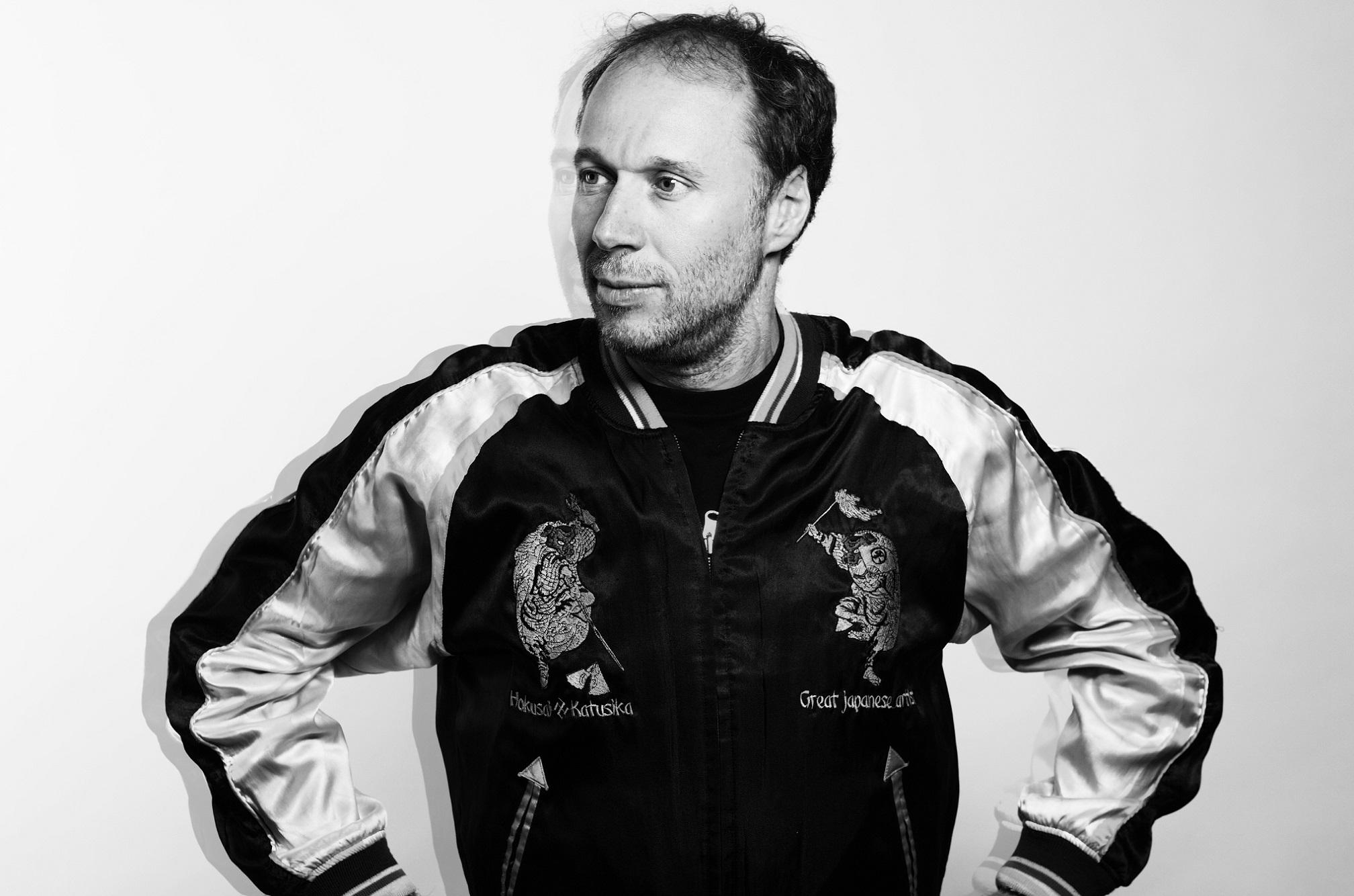 Features
Features
Lifelong sonic connoisseur: inside the kaleidoscopic orbit of Alex From Tokyo
“For the past few years there have been a lot of great things happening in the underground scenes throughout Asia"
When it comes to understanding the similarities, contrasts and effervescent symbiosis between the east/west underground movements, there can be few artists better informed than the extraordinarily well-travelled DJ, producer, and audio sage, Alex From Tokyo.
Born in France and raised in Tokyo, Alex has spent much of his life crisscrossing the earth's latitude – shifting between Paris, Tokyo and later New York – all the while connecting, creating, and purveying expansive subterranean sounds to grateful audiences. He's collaborated with venerated artists from almost every inch of the subcultural map, produced music under various guises – notably alongside Isao Kumano and Kenichi Takagi as Tokyo Black Star – and DJ'd at respected venues on all corners of the planet. He runs his own World Famous record label, periodically functions as a music director for international fashion brands, including Y-3, Louis Vuitton, Mini, Li-ning, and in 2010 co-founded Japanese audiophile brand, PHONON, alongside Isao Kumano.
This month, El Triangulo Records presented a digital incarnation of the 2016 vinyl-only release, 'Not My Day' – a collaboration between Alex and cosmic troubadour (and former Phenomenal Handclap Band member), Quinn Lamont Luke. The all-new digital re-animation represented an excellent opportunity to speak to Alex to discuss the release, as well as to learn a little more about his fascinating and wildly varied career.
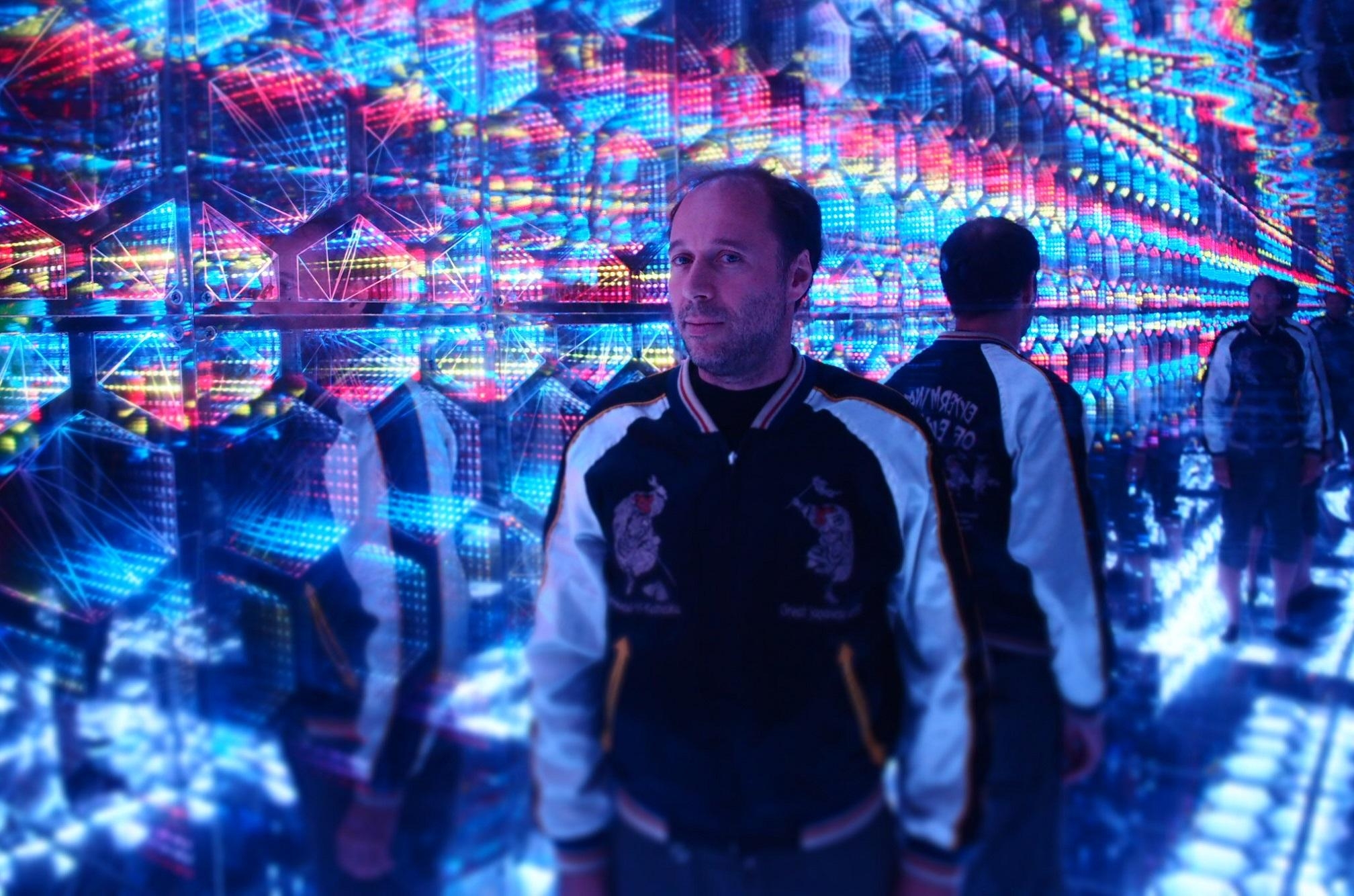
'Not My Day' was born out of a 2015 studio session between long-time friends Alex and Quinn in the East Village during a period that both artists were living in New York. “I have been a big fan of Quinn’s music from the beginning,” says Alex. “He had also done a very good cover of Lil’ Louis 'Club Lonely' for the Japan release of his album. I had just relaunched my label world famous from NYC, and I thought it would be a great idea to do a collaboration EP around those two songs.”
The exquisite three-track EP contains signature Tokyo Black
Star Remixes of both the title track and the Lil' Louis cover,
providing a balanced counterpoint to the dream-inducing aesthetics of
the original versions. “The original of 'Not My Day' is a nice
mid-tempo boogie jam,” says Alex. “I thought in contrast it would
be good to have a Tokyo Black Star re-interpretation house remix for
the clubs. I took the separate elements to Tokyo, and Isao and I
worked together on the remix in his studio.”
The vinyl version of the EP arrived via Alex's World Famous label, an imprint initially launched in the early 2000s as a platform for his seminal DJ compilation mixes, before being resurrected in 2015 to provide a home for his original compositions and collaborations. After a brief hiatus, the label was again revived from Berlin – where Alex is now based – with the back catalogue introduced digitally on Bandcamp. “I re-launched World Famous in 2019 with a project called AWIDA 'NYC Connexion EP' with my great friend Willie Graff,” says Alex, who soon after went on to re-issue one of Tokyo Black Star's standout singles. “After 15 years of its original release with the Dixon edit, I thought it would be great to re-issue our classic 'Blade dancer' in its original full-length version, including a new version and the full-length version of the ambient piece 'Kagura',” he shares.
In recent years, Alex and Isao's time has, understandably, been largely occupied with the herculean task of running their PHONON audio company, so composing new music has had to take a back seat, at least temporarily. Despite this, Alex felt it important to re-introduce the Tokyo Black Star sound to evolving new audiences. In December 2020, the 'Edo Express EP' was given a digital release, and in June this year, the 40-minute epic 'Fantasy Live 1999' was introduced into the binary domain. Fortunately, it shouldn't be too long before we are able to behold some previously unheard sounds from Alex and TBS. “I am planning to release next year a collection of unreleased and new material from Tokyo Black Star,” reveals Alex, before hinting at yet more enticing projects to come. “I have a few remix projects in the pipeline and, as a big goal, I am starting to prepare myself to put together under my own name, Alex from Tokyo, a personal album project.”
Prior to his production career commencing, Alex had released numerous vividly colourful mix compilations, and the task of curating and the skill in constructing these collections is something he relishes. “I love to work on compilations and DJ mixes because I focus on one theme, one concept or one idea,” he says. “It is a very fun exercise to come up with a tracklisting, going through your collection and also discovering new music, but the licensing process – with major record companies – can be actually quite stressful and take a long time. Most of the time, I like to program my music as a DJ set if it makes sense. The flow is definitely very important.”
One glorious example of such a compilation is the 'Originals vol. 10' album constructed for Paul Murphy's roundly admired Claremont 56 label, a project Alex says he was honoured to be invited to contribute to. “Every volume was so good. I have always been a big fan of Paul’s productions from the '90s – with Akwaaba and then Mudd [and] I love what Paul has been doing at Claremont 56. After the tracklist of the compilation was confirmed, Paul came to NYC for a few days, we shot some pictures in the Lower East Side for the CD artwork and we had lots of fun!”
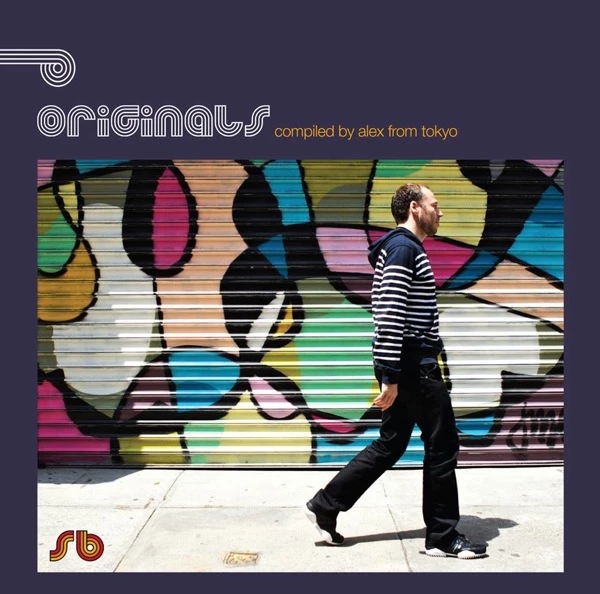
For many foreign visitors, arriving in Japan can feel like something of a culture shock, but – having moved to Tokyo as a four-year-old boy – for Alex, the shock arrived when he returned to Paris in his late teens to attend university. “Paris is an urban jungle compared to the safe, organised metropolis of Tokyo,” says Alex. “Paris felt old, stagnant, backwards compared to the very dynamic and advanced Tokyo. Culturally I felt off and I didn’t fit in the normal Parisian mould. I felt like an alien first, most of my references were different [and] it took me some time to adjust. I was also looking for my own identity. The music people of my age were listening to was different, they were trying to be like their parents, listening to the same music as them. Nobody was into underground dance music. Paris and then Europe function as completely different types of society. The Tokyo I grew up in was a protected International bubble for sure. The grey winters, people complaining all the time, the daily aggressiveness in Paris were tough.”
Despite the stark contrast to the life he was used to, before long Alex was able to connect with some kindred spirits, especially in the music world. He joined forces with DJ Deep and DJ Gregory to form the now legendary A Deep Groove radio show on FG 98.2 FM, and his newfound experience of his birth city led to important musical discoveries. “Going to my first raves just outside Paris in the early '90s was a big revelation as I had only experienced dance music in clubs and parties in Japan. The music was different and harder in Europe. The Detroit and Chicago sounds were very popular and European techno and rave music was exploding. It was definitely eye-opening.”
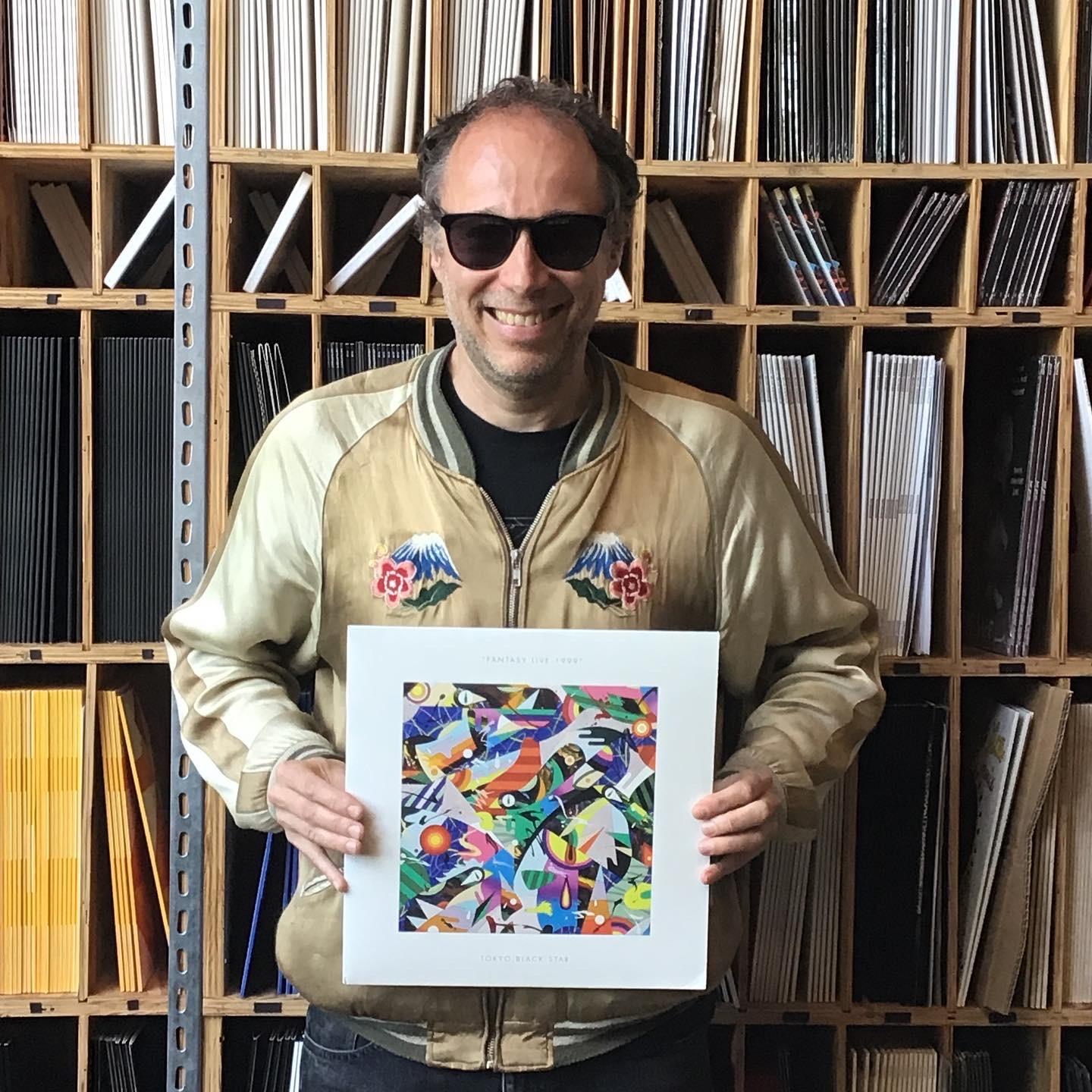
In
1995, Alex returned to Tokyo, and it was from this time that his
unique experience in Europe and Japan began to manifest all manner of
opportunities for east/west exchange. Working with benchmark
European-based artists and labels – including Laurent Garnier,
Yellow Productions, Disorient Records, and more – he emerged as a
figurehead in the then-blossoming Tokyo underground. With help from
his residencies at Club Yellow and on the radio via Shibuya FM, Alex began to
generate more and more international DJ bookings, and it was around
this time that the Alex From Tokyo handle began to stick.
Attracted by the city's mythical status as a spiritual home of club music, and encouraged by connections with Larry Levan, Francois Kevorkian, David Mancuso, Daniel Wang, and Sarah Ellison, Alex relocated to New York in 2005. He would spend the following decade here, exploring his musical roots while enlivening the local club scene with performances at clubs including APT, Cielo, Output, and Le Bain.
Having now settled in Europe's centre of sub-culture, Berlin, Alex has now lived and worked in some of dance music's most iconic destinations, and though each place has left an indelible mark on him, he feels all three cities have their own unique identities. “These three capitals have their own distinctive vibes, they are so different politically and culturally. They are cities obviously I find interesting and inspiring.” While he feels that all three cities have changed dramatically in the last 30 years, Alex suggests that – even if the language is sometimes a challenge – Berlin retains certain ingredients conducive to creative yield that the other two are perhaps now lacking. “Compared to Tokyo and New York, Berlin is still today a great unique capital that welcomes and supports creative people with life being still affordable,” he says. “It is the centre for what we do [and] there is a good quality of life in Berlin. NYC remains the most international and diverse city in the world but is unaffordable. I still think that Tokyo is one of the most exciting cities in the world but it is less open, homogeneous and more limited. It feels right for me now to be in Berlin and in Europe with my work.” Alex appears to have settled well into the vibrant milieu of the German capital. “I feel pretty good and in sync with my beliefs in Berlin now in relation to where I am in my life. Berlin is a great international cultural capital for creative people, for music people and also for families. Berlin offers a great balance.”
Despite the affinity he feels
for his current place of residence, Tokyo is still very much a part
of his being. Since the pandemic struck, Alex has been unable to
visit, and he shares that he misses the city greatly. “Tokyo will
always feel like home to me,” says Alex. “It is deep in me, I
lived there more than 25 years!”
Turning to the underground music scene in Tokyo today, Alex feels that what exists there today is perhaps a few degrees less luminous than the one which preceded it. “From the mid-2000s, generally speaking, the energy in Japan has gone down over the years,” he says. “The nightlife entertainment industry had suffered a lot with the old Fueiho 'no dancing after midnight' Law – which has been revised finally in 2014 but creating some other problems to venues – and with some bad press coverage in the big media related to drugs. 3/11 with Fukushima in 2011 was a very big blow.” Alex suggests that there has been a generational shift and that younger people are less interested in the club scene in Japan. “Clubbing is not part of the lifestyle anymore,” he says. “Japan has become even more closed to itself and conservative, losing its edge. Clubs lost their appeal and became 'normal'.”
Fortunately, though, all is not lost. There remains a core who are committed to keeping the fire burning, and while the clubs may have lost some of their spark, alternatives have presented themselves. “Music bars, outdoor parties and festivals in beautiful nature took over giving a new fresh air to the scene,” says Alex. “There are still very good things happening 'underground', but that general dynamism and euphoria of the '80s and '90s is mostly gone… Let’ see now how will it be after the pandemic. It is a big difference compared to the big explosion of underground dance music in Europe the past few years.”
There exists, too, a crop of artists that Alex feels are helping breathe life into the country's flagging movement. “There are some very good, creative and talented DJs in Japan. They might not be the new generation of producers, I like for example Hoshina [Anniversary] and Ground, they have been incorporating traditional and folkloric Japanese sounds to their very deep and personal music.”
Japan's subaquatic music scene emerged more quickly than that of other Asian nations, and initially evolved approximately on a par with many of its western counterparts. Alex offers a fascinating insight into why this came to pass. 'It is mostly because there has been a deep, vibrant and continuous culture of electronic music and underground dance music in Japan since the beginning – via the US and Europe first – which has been shaping the different scenes in Japan over the past 40 years,” he says. “Let’s not forget that Japan is one of the pioneering countries to contribute to the development of electronic music in the world thanks to its technologies, engineers, sound professionals, musicians, music equipment companies etc. There is an older and solid foundation in Japan which makes it more established than the rest of the Asian countries. It is not only about partying, it is about a culture as a whole with its infrastructures, from record stores, magazines, audio brands, clubs, music bars, to parties and festivals etc.”
However, while the momentum seems to have slowed in Japan's clubland, Alex believes other Asian nations are now making powerful strides into the international zeitgeist. “I feel though for the past few years there have been a lot of great things happening in the underground scenes throughout Asia – from Hong Kong with the very good Minh club and collective, Vietnam with The Observatory and Savage, Jakarta with Zodiac, China and Korea.”
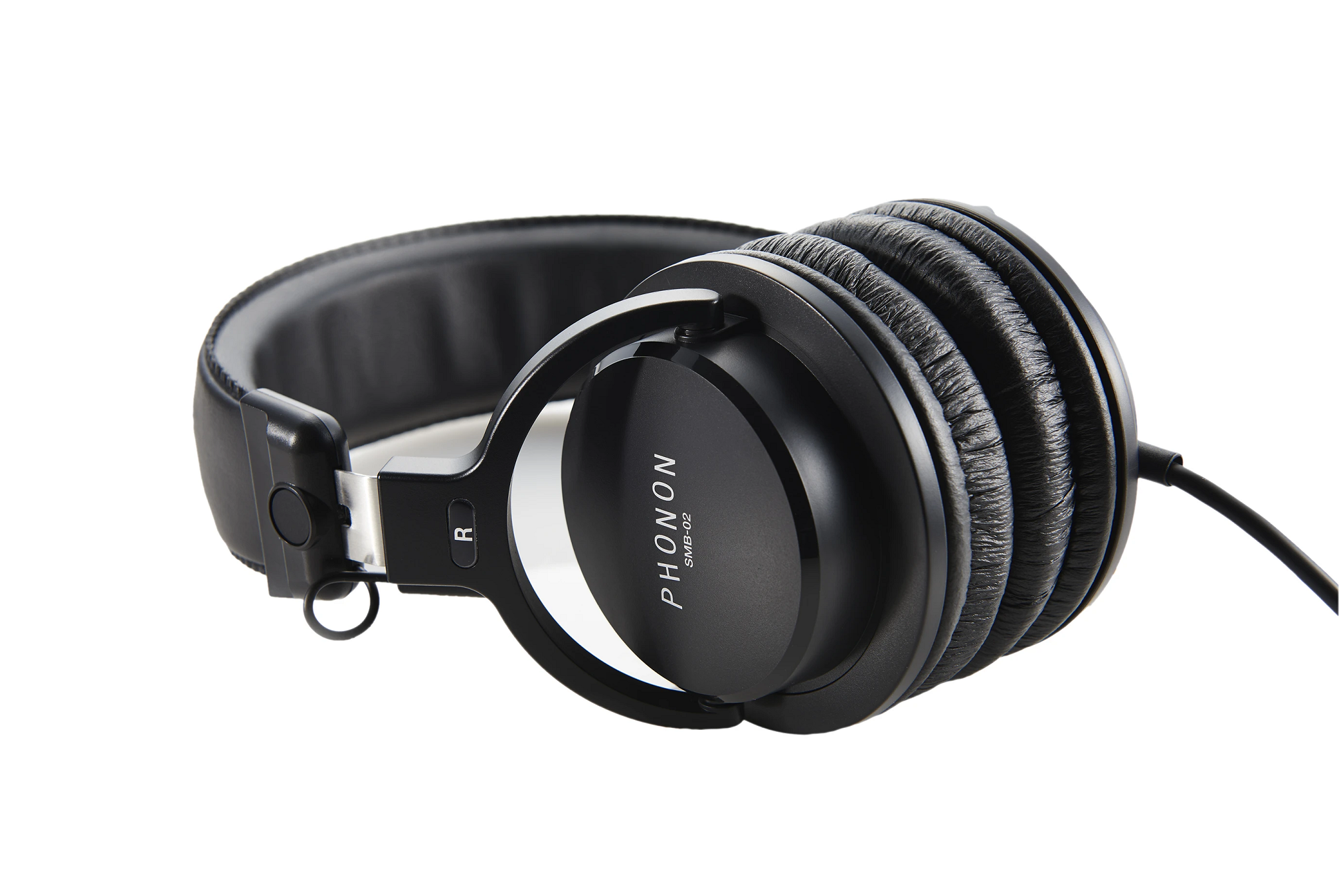
The PHONON audio manufacturing brand Alex founded with Tokyo Black Star partner Isao Kumano continues a proud legacy of Japanese audiophile affiliation, a phenomenon that endures today, but that Alex feels was in its prime a few decades ago. “I think the small neighbourhood of Shibuya had the most number of record stores in the world in the '90s,” he says. “There is a real deep traditional appreciation of 'crafts' in Japan. Japanese people are serious about their craft and passion they like to study hard to perfect. They are highly educated and curious. They have good taste all the more and they have high-quality standards. No wonder Japan is also the country of the 'otakus' and their subcultures. There is a niche for everything in Japan!”
Alex suggests the level of enthusiasm and attention to detail in Japan is almost unparalleled. Combine this with the economic boom the country experienced in the '70s, and the nation's long-standing simpatico with the nuanced shades of western culture are all the more understandable. “It seems like Japanese people were very receptive from the beginning to all these new music genres that were coming, for example with jazz music with the Jazz Kissa. Japan learnt very quickly to produce locally very good audio equipment to listen to all this exciting music,” says Alex. “The situation in Japan has changed in the last 10/20 years and the young generation are not quite living and enjoying music like the older generation.”
Starting an audiophile brand seems like a dauntingly impenetrable endeavour. It is almost unfathomable to comprehend how one might go about manifesting such an organisation from scratch, so Alex's insight into PHONON's creation is genuinely fascinating. “In the late 2000s, Isao met through his music network with a few hi-end audiophile veterans that used to be involved in some of the biggest audio brands in Japan, working on some important projects during the '80s,” he says. “They began to collaborate, experimenting, building equipment, testing them etc.” Isao had already customised and built his own bespoke studio system, and through these sessions, the idea of launching a new style and brand began to take shape.
A lack of funding hampered the earliest vision of the project, but Alex and Isao were undeterred. “The original plan was to release a pair of speakers based on some interesting concepts, ideas and technologies, but with no investment, we couldn’t do it, [so] Isao decided to use these principles and apply them in a pair of headphones instead – to create the pair he would love to use for himself as he never really found a great pair he wanted to use for his studio work.” The company was launched in 2010 and continues to thrive today. “We made a very limited batch of the SMB-01 and then we made our first proper pair the SMB-02 which became our flagship and got very well-received in the world.”
Alex's primary role in the organisation is to represent the brand outside of Japan – leaving the bulk of the technical side to Kumano – but his input doesn't stop there. “My partner Isao who is a highly-respected sound and mastering engineer in Japan is the main engineer behind our PHONON products. I give my feedback throughout the development process as a DJ [and] sound professional with my international experiences.” As one might expect, the journey from planting the seed of an idea to actualising a fully functioning manufacturing operation and brand hasn't always been plain sailing. “The industrial-design part at the very beginning was the most challenging, says Alex. “We were able to customise headphones but how can you mass-produce them from a prototype from scratch at a factory? Where to start? We had to learn everything, and we are still learning today. As a 100% independent company with very limited resources, the business and the distribution side of things have been very tough.”
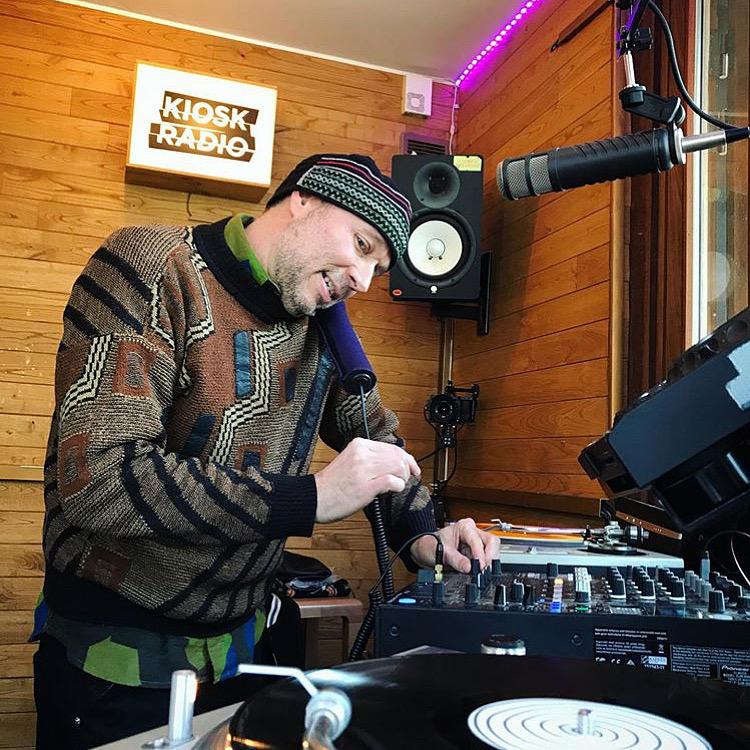
Before
we left Alex to carry on with his busy schedule, it would have been remiss
if we didn't ask a refined audiophile such as himself to share some
details of his home listening and DJ set up. As it turns out, he has
two separate rigs designed for both analogue and digital listening.
“I have two home – old and new – listening set-ups I love to
switch back and forth,” he says. “The analogue set up with a pair
of Klipsch Cornwall [speakers], a Macintosh amp, a UREI 1620 DJ mixer
and two Technics SL-1200 – including one customised with an SME
tone-arm, and a CDJ playing mostly vinyl. My other set up is for
listening to digital music files from my computer on the amazing
Audirvana software platform – via Bluetooth – on the impressive
PHONON portable monitor speaker the MUSICLIFE ML-2.”
Quinn Lamont Luke & Alex From Tokyo 'Not My Day' is out now on El Triangulo, you can buy it here


